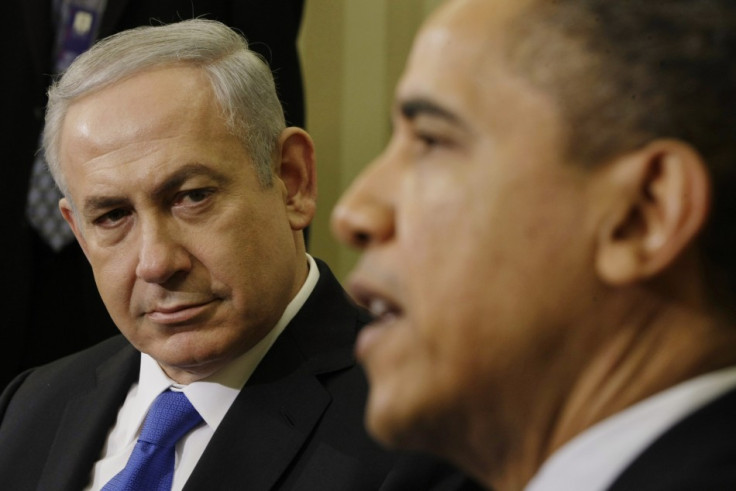Time for Barack Obama to Slap down Benjamin Netanyahu [BLOG]
Cards are stacked on Obama's side to lay down tougher conditions on US' scratchy relationship with Israel

Before the Israeli election, the expected result was Benjamin Netanyahu not only retaining the top seat in the Knesset but would also head a far more right-wing coalition as voters lurched in that direction. What transpired was not only a slap in the face for the polices of Netanyahu, but a far more centralist-looking government coalition looks likely to emerge.
Netanyahu's Likud party may have taken the top spot but it dropped seats compared to the last parliament, and his hawkish position will have to be tempered by including, and making concessions to, other less hawkish parties in his coalition that do not share his agenda on the two big issues - Palestine and Iran.
Just as no country is more important for the future of Palestine than Israel as it controls the daily lives of most of Palestinians in the occupied territories, but how Israel deals with the Palestinians is important to the future of Israel.
The atmosphere between the US president and the Israel's prime minister has been cordial at best in recent times. The decision to build thousands of new housing units in areas including the E1 zone east of Jerusalem has further strained relations not only with their largest ally in the United States, but earned Netanyahu condemnation from most world governments.
The United States has provided the diplomatic cover for most of what it does, wielding the United Nations veto whenever international anger has reared its head over Israel's actions, but Israel now faces relying on a US president who does not have to fight for re-election and who is on little more than nodding terms with an Israeli leader who he doesn't trust or seem to like very much.
The Obama snub of Netanyahu at the United Nations in September was a telling moment, as was the off-the-record quote to a journalist, "Israel doesn't know what its own best interests are" when discussing the ongoing settlement building.
Reduced financial aid
Obama, if he so chooses, has the opportunity to set the parameters in which Netanyahu operates by hanging some conditions on the $5bn handout his country annually pushes towards Israel. The idea of reduced financial aid would help focus minds immediately within the Israeli government.
He could decide that continual unconditional support for Israel has very little benefit for America and with not having to appease the religious block in America, there is very little political gain to be had by backing a leader who is so obviously hostile to him. Such a one-sided relationship, which gives all the headaches, costs the US taxpayers billions and has no real benefit to his political aspirations, is not worth the blowback for America.
Many US presidents have attempted to persuade Israel over the Palestinian issue, usually in the twilight of their administrations as an attempt to write themselves a legacy as the man who bought peace to the volatile region, but all have failed.
Obama, with four years stretching out in front of him, has the time and the leverage to persuade Netanyahu around to his way of thinking as to how they act towards Palestine and how they deal with the perceived threat from a nuclear Iran .
Whether Obama has the will to manoeuvre Israeli policy towards its neighbour we will discover over the next few years but Netanyahu is in a weaker position than he was a week ago and a less hawkish, more subdued Netanyahu, has to be a good thing.
Lucy P writes commentary on news, politics and media on her blog Falling on a Bruise
© Copyright IBTimes 2025. All rights reserved.





















